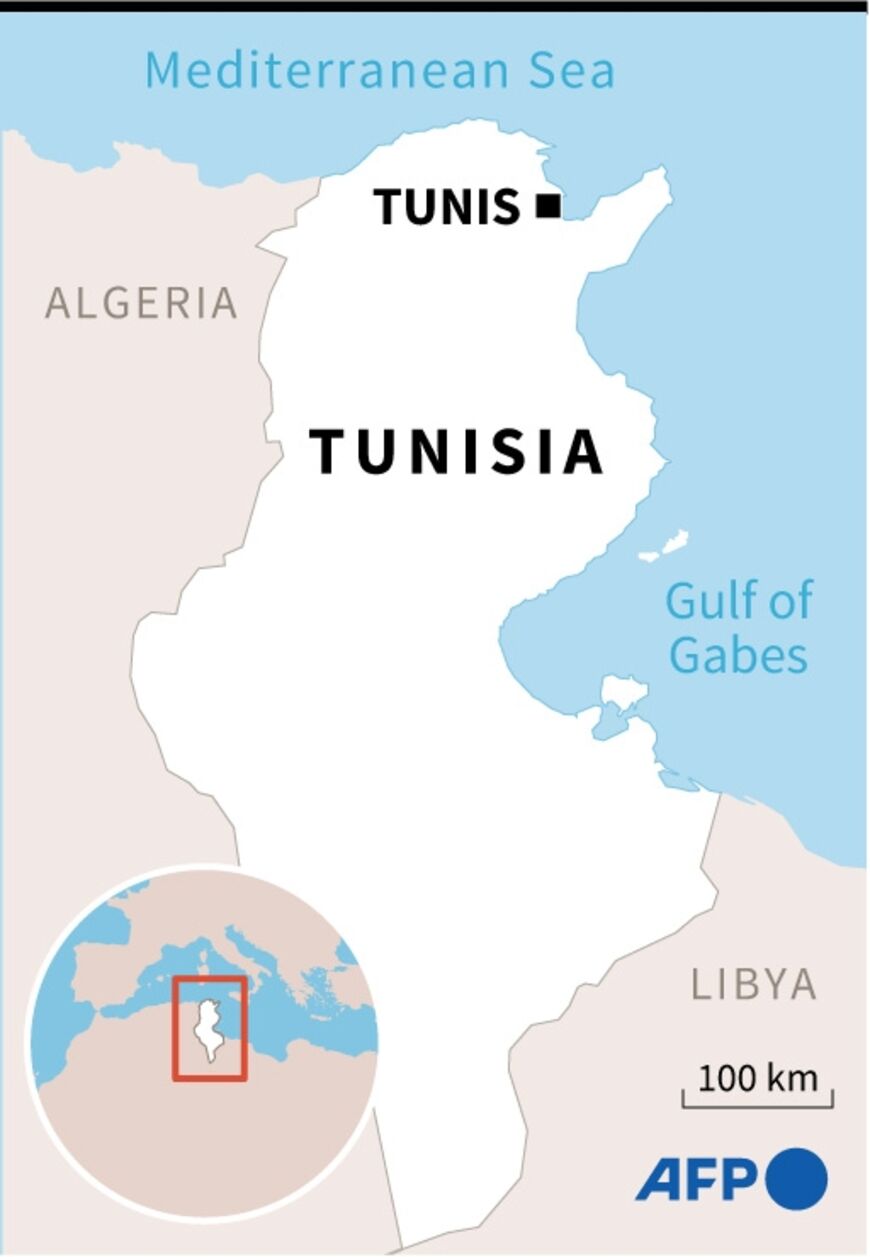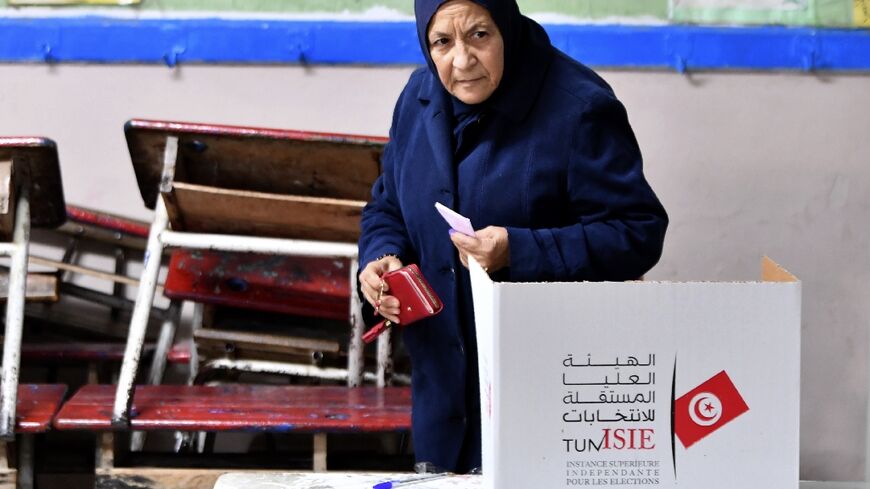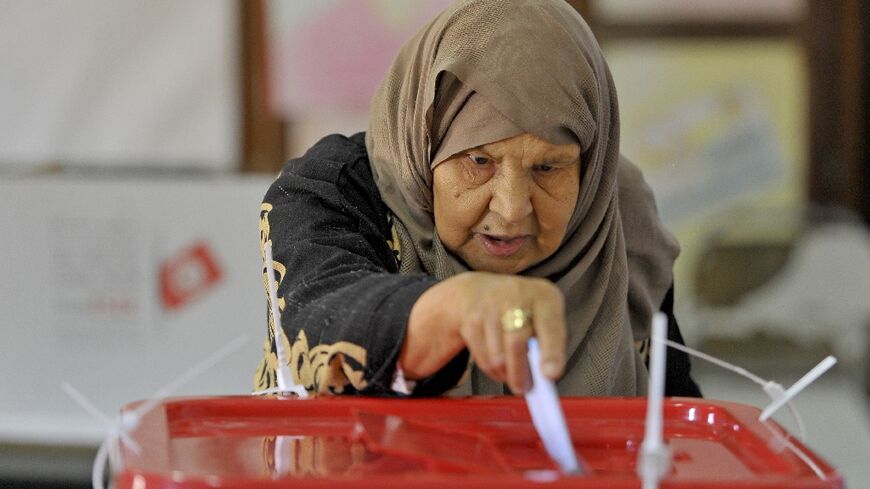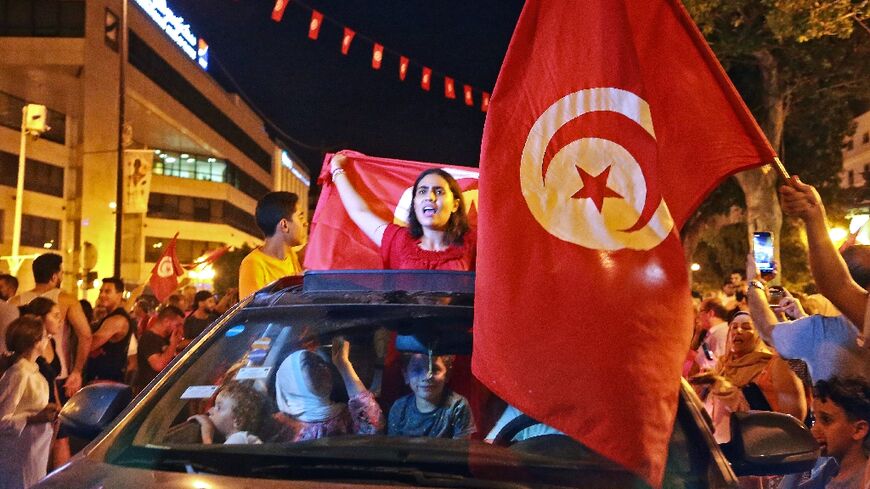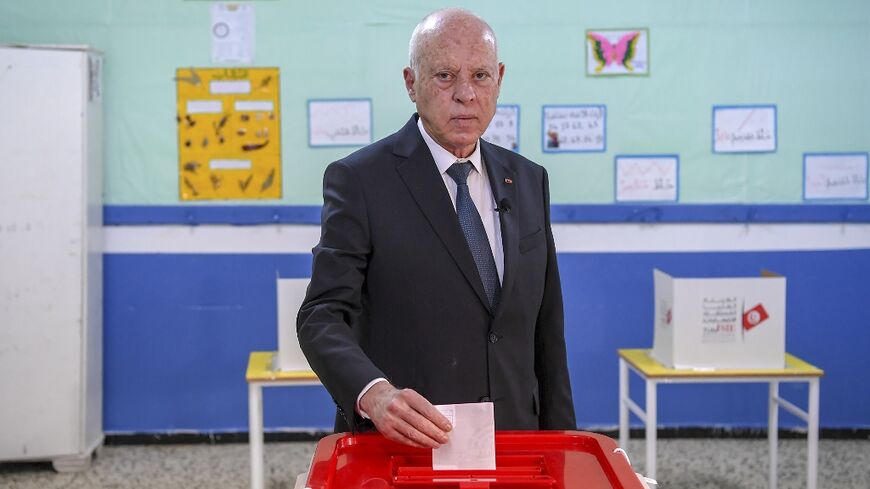Tunisia election board edges vote turnout up to 11 percent
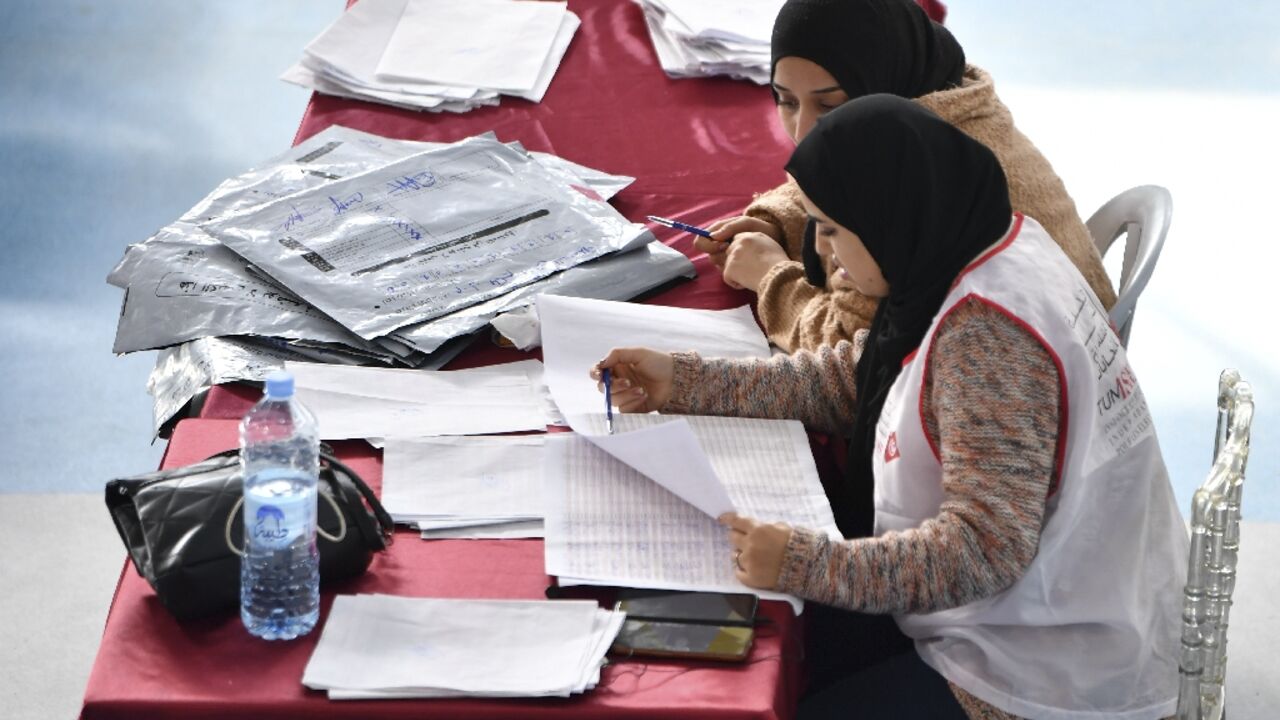
Tunisia's electoral board revised the turnout in parliamentary elections slightly upwards to 11.2 percent on Monday, a poll that opposition groups said undermined President Kais Saied.
The ISIE electoral authority had initially announced participation of 8.8 percent after the close of voting for a parliament largely stripped of any power, the final pillar in Saied's overhaul of the political system in the birthplace of the Arab Spring uprisings.
ISIE chief Farouk Bouasker told journalists in Tunis that just over one million of the North African nation's nine million registered voters had cast ballots.
The figure is the lowest since the 2011 revolution that overthrew dictator Zine El Abidine Ben Ali, down from 70 percent in 2014 legislative polls and just a third of the 30.5 percent in this summer's vote on a new constitution cementing Saied's authority.
Saied sacked the government, surrounded parliament with tanks and seized full executive powers in July 2021, and has since moved to reinstall a system concentrating almost unlimited power in the hands of the president.
The main opposition coalition, which had called for a boycott, said Sunday the low turnout should be a cue for Saied to step down.
But Saied hit back on Monday, saying that "certain known parties found nothing to focus on except turnout in the first round of the election", saying this was "like announcing the final result of a sporting event at the end of the first half."
A second round of voting is set to take place early next year.
In the statement from his office, Saied also noted that some of his critics are facing criminal charges in the courts -- a reference to lawsuits targeting Ennahdha officials.
Few Tunisians showed any interest in the election, with no serious public debate among the 1,055 candidates.
The new assembly has few powers, being unable to sack the government or topple the president, whose bills will take priority over any put forward by members of parliament.


